Will The NRA Win Its Lawsuit Against Washington State?
Posted by Mandu Moses on Apr 26th 2024
In the heart of the debate over gun rights in America, the National Rifle Association (NRA) has filed a lawsuit against Washington State, challenging the constitutionality of a new law that bans the sale of commonly owned semiautomatic firearms. This legal action, titled Banta v. Ferguson, was filed in the Eastern District of Washington and represents a significant challenge to House Bill 1240, signed into law by Governor Jay Inslee.
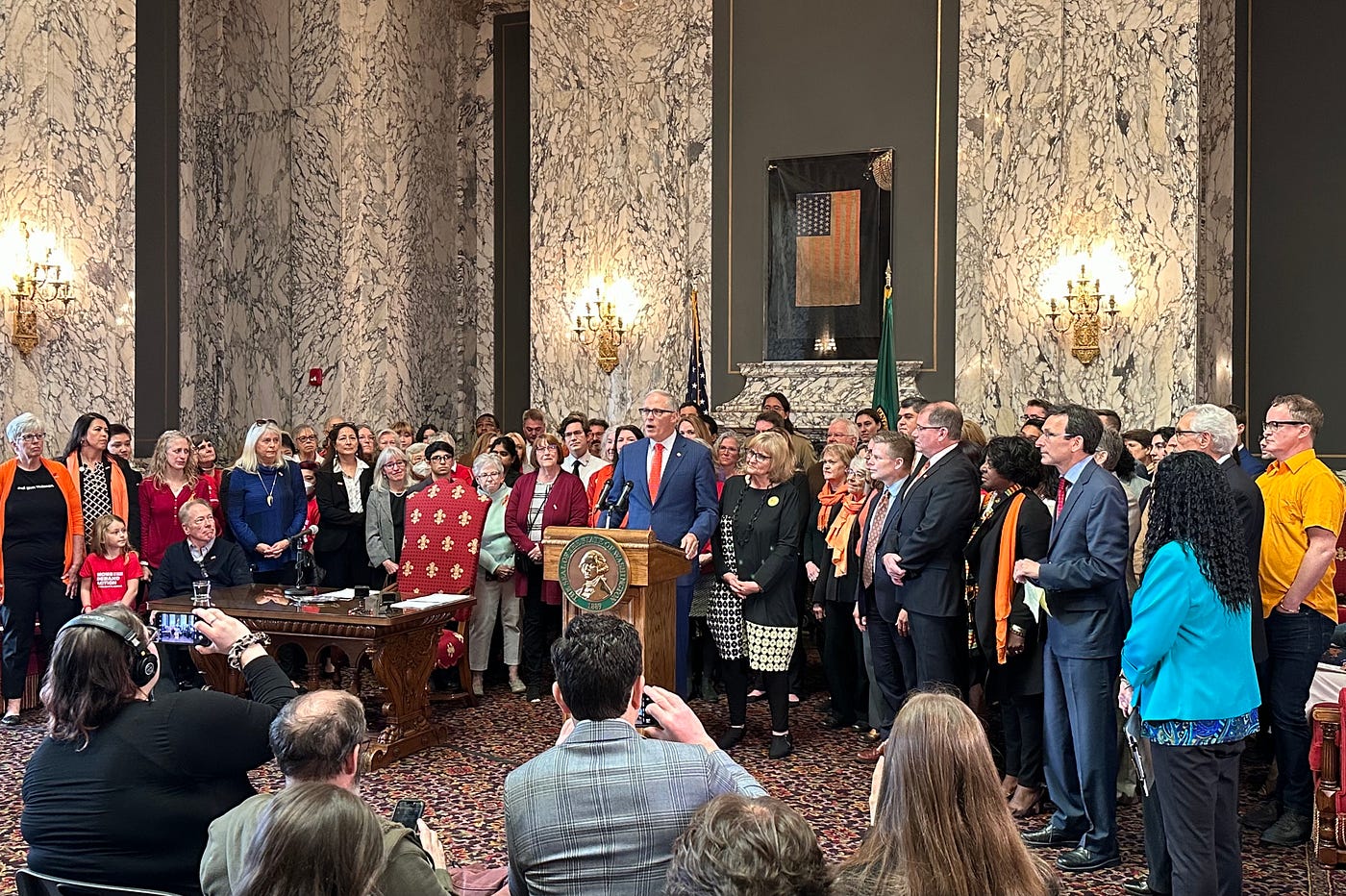
Photo Courtesy WA.gov
The NRA, a gun rights advocacy group, argues that the ban unconstitutionally restricts law-abiding citizens' ability to own commonly used firearms for self-defense, recreation, and competition. They contend that the ban goes beyond targeting specific features or calibers, infringing on the fundamental right to bear arms.
With the fate of gun ownership in Washington, and potentially beyond, hanging in the balance, the NRA's lawsuit promises a high-stakes legal battle with far-reaching consequences.
NRA vs. Washington State
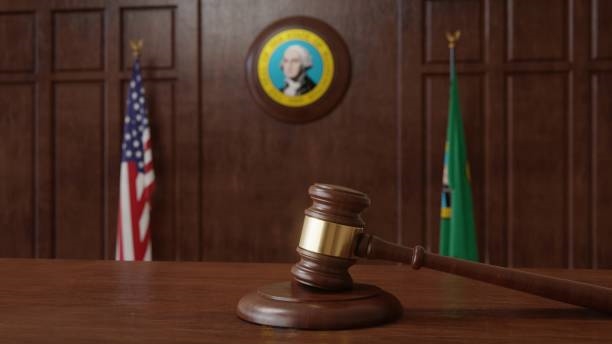
Credit: HT Ganzo
The Second Amendment, supporting the right to bear arms, sits at the heart of a complex legal battle unfolding in Washington State. On one side, the National Rifles Association (NRA) stands tall, On the other, lies a patchwork of Washington State laws, including a recent ban on certain semiautomatic firearms.
Washington State: A Shifting Landscape
Washington's gun laws have evolved, reflecting the ever-present debate between gun rights and safety. While the state respects the Second Amendment right to bear arms, it also implements regulations to ensure responsible gun ownership.
In 2023, House Bill 1240 banned the sale, manufacture, and import of certain semiautomatic firearms, including popular AR-15 rifles. This was a clear infringement on Second Amendment rights, as challenged by the NRA.
The Collision Course
The NRA, seeing the ban as an overreach, filed a lawsuit challenging its constitutionality. Their argument focuses on the Supreme Court's recent decision in New York State Rifle & Pistol Association Inc. v. Bruen, which emphasized the "historical tradition" of firearm ownership as a key factor in determining the constitutionality of gun laws. The NRA argues that semiautomatic rifles are widely owned and used for lawful purposes, making them a protected category under the Second Amendment.
Washington State, however, defends its law, arguing that semiautomatic rifles are not historically ingrained in the right to bear arms. This lawsuit will have far-reaching implications, potentially shaping gun laws not only in Washington but across the nation.
Will the NRA Win its Showdown with Washington State?
The National Rifle Association (NRA) and Washington State are locked in a legal battle over the new gun control law, HB 1240. The NRA has challenged the law on the grounds that it violates the Second Amendment right to bear arms.
The Legal Battlefield
The NRA's lawsuit rests on two main pillars:
- Second Amendment Violation: The NRA argues that HB 1240 bans a larger class of firearms commonly used for self-defense and lawful purposes. They point to recent Supreme Court rulings, like NYSRPA v. Bruen, which emphasized that states cannot ban guns that are "in common use for lawful purposes."
- Equal Protection Violation: The NRA claims the law unfairly discriminates against certain types of firearms while allowing others with similar functionality. They argue this violates the Fourteenth Amendment's guarantee of equal protection under the law.
Analysis of Legal Precedents
These precedents act as guideposts, shaping the court's interpretation of the Second Amendment and its limitations. It's important to remember that legal interpretation is delicate, and past precedents serve as guides, not guarantees. Let's explore some key cases that could cast a shadow over the current lawsuit:
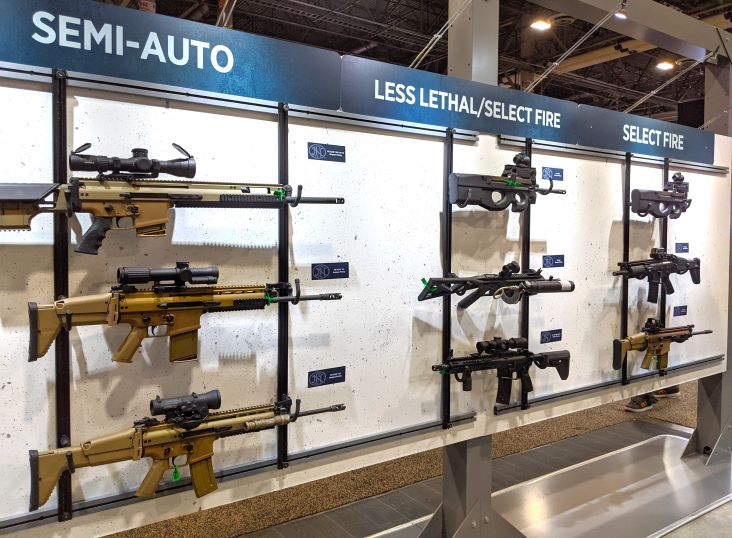
District of Columbia v. Heller (2008): This landmark case established an individual's right to possess a firearm for traditionally lawful purposes, such as self-defense within the home. Although Heller didn't address specific weapon types, it laid the groundwork for challenging bans on commonly used firearms.
New York State Rifle & Pistol Association, Inc. v. Bruen (2022): Bruen narrowed the scope of Heller by emphasizing that bans on firearms "in common use for a lawful purpose" violate the Second Amendment. This case could favor the NRA, as they're likely to argue that the banned firearms in Washington are widely used for hunting and self-defense.
Miller v. United States (1939): In contrast, Miller upheld the federal ban on sawed-off shotguns, as they weren't considered "typical" or "well-suited for a militia." This case might give Washington some traction if they can successfully portray the banned firearms as falling outside the realm of "common use."
Maryland v. Hendler (2018): This case upheld Maryland's ban on "copycat" assault weapons, arguing that their resemblance to military rifles was enough justification for restricting them. The NRA could try to draw a parallel and argue that Washington's ban similarly targets the cosmetic features of certain firearms, rather than their actual function.
Public Perception
The lawsuit between the National Rifles Association (NRA) and Washington State has ignited a firestorm of public debate. While the issue of gun control always polarizes, this case feels particularly charged.
Supporters of the NRA view the lawsuit as a necessary defense of Second Amendment rights. They argue that the Washington law infringes upon their right to bear arms, especially popular semiautomatic rifles, and that the state overstepped its authority. Many believe that the ban won't prevent criminals from obtaining guns, but only hinder responsible gun owners.
Critics of the NRA's action often frame the lawsuit as a cynical attempt to prioritize gun rights over public safety. They point to the tragic mass shootings in recent years and argue that stricter gun laws are crucial for reducing gun violence.
The public divide is further complicated by concerns about the effectiveness of the ban itself. There has not been a significant drop in gun-related crimes in countries where stricter gun laws have been enacted such as Canada and Australia.
Some question its ability to significantly impact gun violence, while others worry about its potential to create a black market for restricted firearms.
Stakeholder Perspectives
The lawsuit has also drawn diverse opinions from various stakeholders with vested interests.
Gun Owners are understandably concerned about the potential impact of the ban on their ability to own and use firearms. They represent a significant voting bloc and can exert considerable political pressure. Their voices are amplified by gun rights advocacy groups like the NRA, which aim to protect the interests of their members.
Advocacy Groups on both sides of the gun control debate are heavily invested in the outcome of the case. Groups like the Brady Campaign to Prevent Gun Violence see the lawsuit as a threat to their efforts to curb gun violence, while pro-gun groups like the National Association for Gun Rights view it as a crucial battle in their fight to protect Second Amendment rights.
Legal Experts are analyzing the lawsuit through the lens of constitutional law and precedent, particularly the Supreme Court's recent decision in NYSRPA v. Bruen, which reaffirmed the right to bear arms. Their interpretations and analyses will be crucial in shaping the legal arguments and potentially influencing the court's ultimate decision.
The NRA lawsuit against Washington State is far from a simple legal dispute. It represents a clash of deeply held values and priorities, dividing the public and raising complex questions about gun control, public safety, and the very essence of the Second Amendment. As the case progresses, the voices of all parties involved will continue to shape the public discourse and potentially influence the future of gun laws in Washington and beyond.
Potential Impacts for Gun Owners and Beyond
The lawsuit challenging Washington State's ban on "assault weapons" is a high-stakes game not just for the National Rifle Association (NRA) and Gov. Jay Inslee, but for gun owners across the state and possibly the nation. The outcome could trigger ripples across the already turbulent waters of American gun control.
For Washington Gun Owners
- Victory for the NRA: If the court sides with the NRA, the ban will be lifted, allowing gun owners to purchase and possess previously prohibited firearms. This would be a significant win for gun rights advocates and could reignite similar legal challenges in other states with restrictive gun laws.
- Defeat for the NRA: Conversely, if the ban is upheld, Washington gun owners would face stricter regulations.
Current Status and Future Developments
Update on the Lawsuit
The NRA, along with the National Shooting Sports Foundation (NSSF) and individual plaintiffs, filed a lawsuit challenging Washington's new ban on certain semiautomatic firearms in April 2023. The lawsuit argues that the ban violates the Second Amendment right to bear arms and is unconstitutional, specifically citing the Supreme Court's recent ruling in NYSRPA v. Bruen. The case is currently in the early stages of litigation, with both sides submitting legal briefs and motions.
Predictions and Speculations
Experts are divided on the potential outcome. Some legal scholars believe the NRA has a strong case, pointing to the Bruen decision which emphasized the importance of "commonly used" firearms for self-defense as protected by the Second Amendment. They argue that the banned firearms fall into this category due to their widespread ownership and popularity for hunting and recreational shooting.
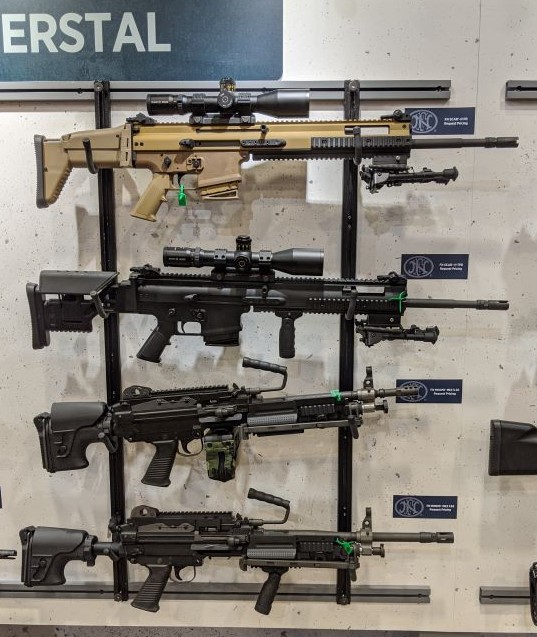
Others argue that Washington's law might be narrowly tailored enough to survive a constitutional challenge, focusing on specific features deemed to increase the risk of mass shootings. Additionally, the Supreme Court's composition has shifted since the Bruen ruling, potentially leading to a less gun-friendly interpretation of the Second Amendment.
Ultimately, predicting the outcome at this stage is challenging. The court's decision will likely hinge on how it interprets the Bruen precedent and the specific details of Washington's law. Regardless of the ultimate result.
The Bottom Line
Washington’s HB 1240 is described by the NRA as the “worst of such schemes in the country,” surpassing even the restrictions imposed by California. The law not only bans a wide range of modern semiautomatic rifles but also extends to certain semiautomatic handguns and shotguns 1. The NRA’s lawsuit is part of a broader legal strategy that has seen similar actions in other states, including Illinois and Oregon, where the organization has challenged bans on semiautomatic firearms and magazines.
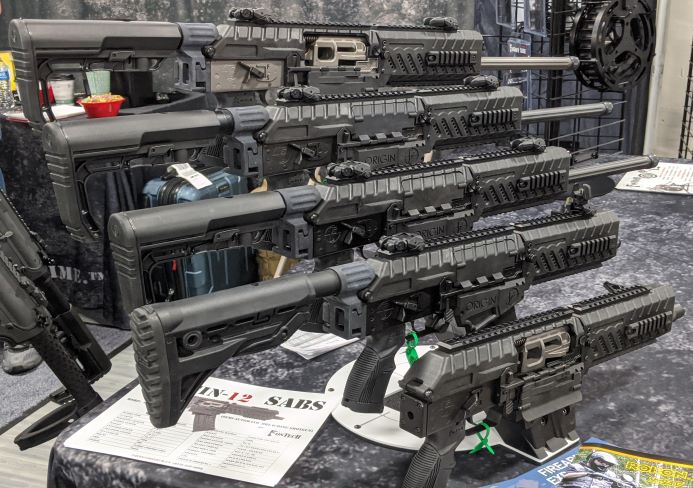
The state of Washington, however, stands firm on its position. Governor Inslee’s press secretary, Mike Faulk, has stated that the state is acting within its authority to protect its residents from gun violence and is confident that the legal challenges will not succeed. Attorney General Robert Ferguson has echoed this sentiment, emphasizing his undefeated record in court against the gun lobby and his intention to maintain that record.
The outcome of this lawsuit is uncertain. The NRA has a history of successful legal challenges against gun control measures, but the current legal and political climate may present new hurdles. The Supreme Court’s rulings have set precedents that both sides will undoubtedly leverage to support their arguments.
As the case progresses, it will be closely watched by both gun rights advocates and gun control supporters. The decision will have far-reaching implications for the future of gun legislation and the interpretation of the Second Amendment in the United States. The question remains: Will the NRA win its lawsuit against Washington State? Only time and the judicial process will tell.
